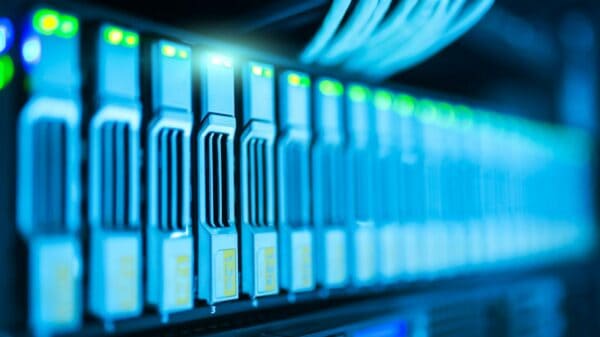 IoT-based smart meters are the new rage in smart metering technology. Companies all across the globe are unlocking new possibilities in energy efficiency through IoT-based smart metering systems. The EU hopes to reduce its carbon emissions by 9% by 2020 using smart meters.
IoT-based smart meters are the new rage in smart metering technology. Companies all across the globe are unlocking new possibilities in energy efficiency through IoT-based smart metering systems. The EU hopes to reduce its carbon emissions by 9% by 2020 using smart meters.
The smart metering industry is expected to attract a $62 billion investment across the globe. Let us see the exciting prospects of IoT-based smart metering in detail.
What is smart metering?
The term smart metering refers to the process of monitoring the consumption pattern of a resource like water, gas, and energy. The monitoring is done through IoT metering devices connected to the internet.
Initially, smart metering was concerned only with monitoring the electricity consumption of industries and homes. With time, the concept also involves monitoring the consumption patterns of other utilities like water and gas.
The smart metering systems are connected to the IoT infrastructure. The IoT infrastructure consists of three major elements:
- The IoT devices ecosystem that upload and download data
- The cloud solutions where this data is stored and processed
- The connectivity technologies that transmit this data
Now let’s look at the need for smart metering in the modern era.
Why IoT-based smart metering is the need of the hour
The following are the various advantages that utility companies and their customers derive from smart metering systems.
No need for manual readings
An IoT-based smart meter allows utility companies and consumers to accurately track the consumption of utilities like electricity, water, and gas. Unlike traditional metering devices, an IoT-based smart meter sends the data directly to the utility company or the customer. An IoT-based smart meter eliminates the need to submit meter readings.
Savings
An IoT-based smart metering system helps the customers save money by showing them exactly how much energy they are using. Some smart meters also convert the energy units into a dollar amount. Utility companies can inculcate good energy habits into their customers.
No more estimates
The utility company is sometimes forced to send an estimated bill based on the typical energy consumption pattern. This happens when the energy reading has not reached the utility company for some reason. The accuracy of such estimates is doubtful. This is true, especially if the energy company does not have detailed information about the consumption pattern of a particular user.
The utility company then tends to generalize and send an estimate depending on the typical usage pattern of customers residing in the same area. With an IoT-based smart metering system in place, the utility company does not need to estimate the usage. This is because an IoT-based smart metering system sends accurate data on a real-time basis to the utility company, taking the guesswork out of the equation.
Highlights faulty appliances
Faulty appliances are the root cause of inflated energy bills. The IoT-based smart metering system helps the users identify faulty appliances. It does so by showing the customers how much energy they are using on a real-time basis. If there is a sudden spike in energy consumption, the users can identify the appliance causing this sudden spike.
Reduces the carbon footprint
According to an estimate by smart energy GB, the smart meters will reduce the emissions coming from homes and businesses by a whopping 24% by the end of 2030. This will happen because smart meters will improve the energy consumption patterns of users. Smart meters will achieve this by making the users aware of their energy consumption in real-time. Smart meters will also prompt users to buy more energy-efficient appliances.
Now let us look at the actual working of an IoT& based smart metering system.
How does IoT-based smart metering work?
We’ll explain the working of a standard IoT-enabled smart meter that uses the ESP8266 Wi-Fi module and Arduino. This kind of smart meter monitors energy usage and sends users notifications. To measure energy consumption, one can use the ACS712 current sensor.
The following components can be used in such an IoT-enabled smart meter:
- Male-Female Wires
- ACS712-30 Amp Current Sensor
- Arduino UNO
- ESP12/NodeMCU
The ACS712 sensor works on the principle of the Hall-effect. In an IoT-based smart metering system, this sensor is used to measure the intensity of the magnetic field around a conductor. The sensor can measure both AC and DC currents, separating the measuring unit from the load.
The Arduino board reads the value provided by the sensor and transfers the data to the Wi-Fi module via serial communication. The data is generated on a real-time basis 24/7. Using edge computing, one can implement the business logic for this data. For instance, edge computing can allow the utility company to calculate the cost of electricity on a real-time basis.
Using this data, the customers can set a value beyond which they are alerted. The utility company can set a logic under which the electricity meter automatically turns off when the value crosses a threshold limit set by the customer.
Applications/use cases of smart metering
Initially invented for monitoring electricity consumption, the IoT-based smart metering systems have expanded their wings. IoT-based smart metering systems are also used to measure water and gas consumption. Let’s look at the various popular use cases of smart metering systems.
Water metering
According to National Geographic, only about 3% of earth’s water is freshwater. More than 8 billion people need to survive on this 3% water. We can understand the importance of water conservation through these statistics.
An IoT-based smart water metering system can help consumers monitor and reduce their water consumption. Smart metering devices can tell the customers how much water they use compared to the city average. An IoT-based smart water metering system can find a person who wastes water. The system can also turn off the water supply remotely if someone has forgotten to do so before leaving home.
Power consumption
Rising global warming mandates the efficient use of electricity. Energy preservation is one of the most critical areas where an IoT-based smart metering system can help. It can help the customers preserve electricity by providing real-time input of the electricity consumed. The IoT-based smart metering system can also help the users reduce their electricity consumption by highlighting the malfunctioning equipment.
Gas consumption
Gas consumption is another area where a smart metering system can prove useful. British gas has deployed 1.7 million smart meters in homes spread across Great Britain. The company analyzes more than 48 data points per customer every single day. An internal study conducted by British Gas shows that customers using smart meters consumed 6% less gas than those not using smart meters.
Closing thoughts
IoT-based smart metering systems are pushing the boundaries of energy efficiency. In a climate-conscious world, energy efficiency is essential, and a smart metering system can play a pivotal role in our fight against global warming. There is no doubt that in the future, IoT-based smart metering systems will be a critical component in smart grids and will help us use our resources more efficiently.
Patrick R, A techno-commercial leader heading Intuz as Director of Growth With over 12 years of experience in the field of Information Technology. His experience and expertise will entice developers and business entrepreneurs with rich content on latest technology stack. Visit for more information: https://www.intuz.com/






















































































































































































